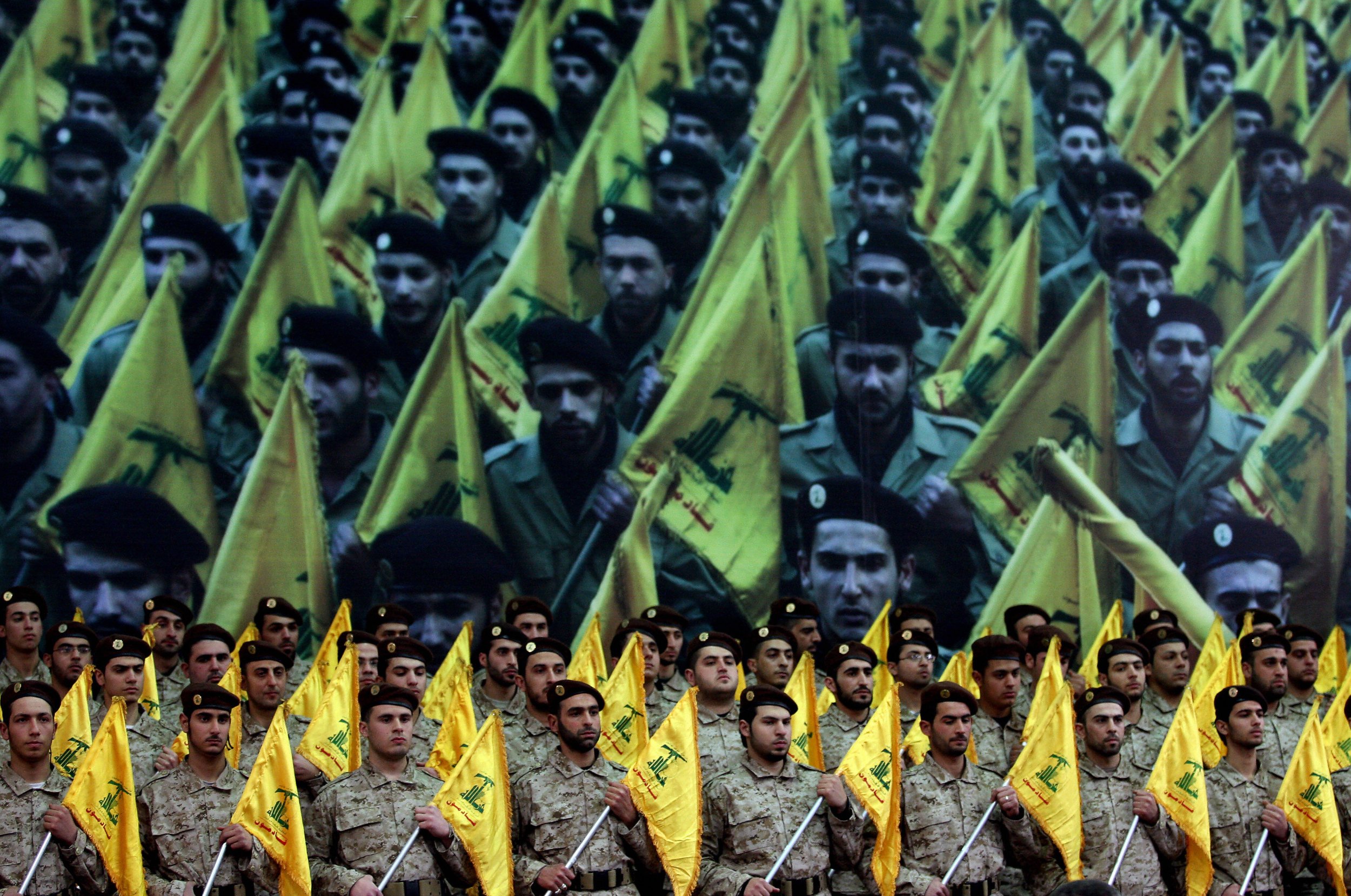
Vice President Mike Pence has again taken aim at Iran and its proxy groups, blaming Lebanese Shiite militant group Hezbollah on Monday for the beginning of the "war on terror."
The conflict, named by George W. Bush following the 9/11 attacks in New York, has been waged across the Middle East since 2001. Its first target was Osama Bin Laden and the Taliban in Afghanistan and then Iraq's Saddam Hussein. More recently, America has fought the Islamic State militant group (ISIS) in Iraq and Syria, both with ground troops and drone strikes.
But Pence, speaking at a ceremony in Washington, used an attack more than three decades old to point to the foundations of the "war on terror:" the 1983 Hezbollah bombing of a Marine Corps barracks in Beirut that killed 241 people. Hezbollah, then a relatively unknown Shiite militia embroiled in Lebanon's bitter civil war, has since evolved into a powerful force in the Middle East, backed by Iran and Syrian President Bashar al-Assad.
"Thirty-four years ago today, America was thrust into war with an enemy unlike any we had ever faced. The Beirut barracks bombing was the opening salvo in a war that we have waged ever since—the global war on terror," he said.
"It's a conflict that has taken American troops across the wider world—from Lebanon to Libya, from Nigeria to Afghanistan, from Somalia to Iraq, and many other battlefields in between."

In Washington, there are now fears of Iranian-sponsored Hezbollah plots on U.S. soil. The U.S. State Department last week issued a $12 million bounty for information leading to the capture of two senior Hezbollah leaders who it believes are planning an attack .
Washington is offering $7 million for information that leads to the arrest of Talal Hamiyah, the leader of Hezbollah's "international terrorism branch," and $5 million for Fu'ad Shukr, a general for Hezbollah in southern Lebanon, the group's stronghold near the border with Israel.
Hezbollah, like Iran, views Israel as its arch-enemy and by association the U.S. because of its historic ties to the country and its backing of the Israeli military. Hezbollah and Israel fought a war as recently as 2006 and tensions remain high on the Lebanese border.
Trump and his administration have ratcheted up their attacks on Iran and its proxy groups. The president has vowed to tear up the landmark agreement between Tehran and world powers signed under the Obama administration that sought to pause Iran's uranium enrichment programme.

The president is taking aim at not only Iran's nuclear ambitions but "all of the bad behavior of Iran," his White House press secretary Sarah Huckabee Sanders said earlier this month.
"Not just the nuclear deal as bad behavior, but the ballistic missile testing, destabilizing of the region, number one state sponsor of terrorism, cyber attacks, illicit nuclear program," she said.
Trump has said that the nuclear agreement lifts crippling sanctions on the Iranian economy that return billions of dollars for it to use on its other activities in the Middle East. Pence said both he and Trump would never let the events of 1983 in Beirut happen again to U.S. interests at the hands of Iran and its Lebanese ally.
"This president will not sit idly by while the ayatollahs in Tehran plot more attacks like the horrific attack that we remember today," he said.
Uncommon Knowledge
Newsweek is committed to challenging conventional wisdom and finding connections in the search for common ground.
Newsweek is committed to challenging conventional wisdom and finding connections in the search for common ground.
About the writer
Jack is International Security and Terrorism Correspondent for Newsweek.
Email: j.moore@newsweek.com
Encrypted email: jfxm@protonmail.com
Available on Whatsapp, Signal, Wickr, Telegram, Viber.
Twitter: @JFXM
Instagram: Read more





